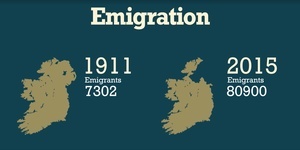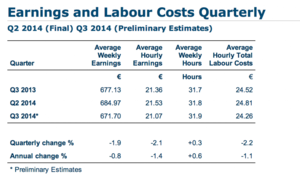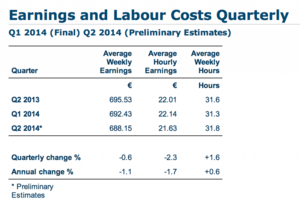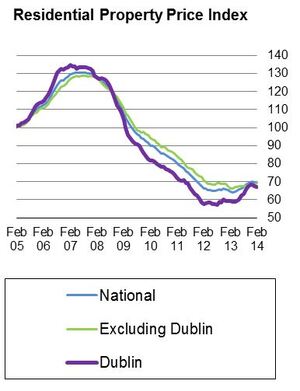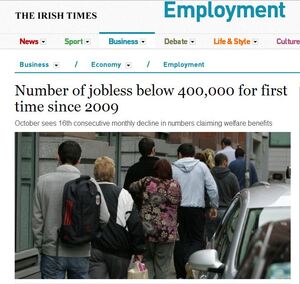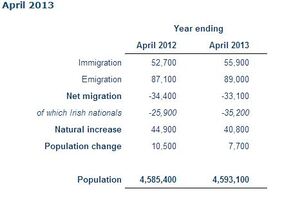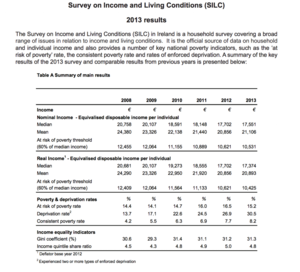
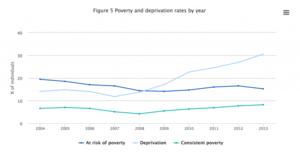

A graph and table from yesterday’s Central Statistics Office survey on income and living conditions in Ireland and Michelle Murphy, from Social Justice Ireland on Tonight With Vincent Browne last night
Michelle Murphy, from Social Justice Ireland, summarised the CSO survey on income and living conditions in Ireland last night.
– The median disposable income for an individual – after tax and after social welfare transfers – is just €17,374. This has dropped from €20,681 in 2008.
– One in eight children is living in poverty.
– 60% of those children is living in consistent poverty.
– As a whole, consistent poverty has doubled since 2008.
– There 698,000 people in Ireland who are living on incomes below the poverty line, in other words living on an income of under €10,425 a year.
– 91,000 people who have a job are living on an income below €10,425 a year, otherwise known as the ‘working poor’.
– If Ireland didn’t have social welfare, half the population would receive below €10,425 per year.
From last night’s show:
Vincent Browne: “The median income is the income that the person in the middle of society has, so it gives a far better reflection. And the median income is €33, 469 and we conduct public debate in this country as though everyone is living off of €50,000 and over. This isn’t true. And I just think half the population are living on..sorry, this is household income now, household income…of less than that.”
Michelle Murphy “Yes, so the median income gives a much clearer picture. It shows you what’s happening in society and the median income has been falling year on year, even though the average income rose this year, the median income fell and the picture of what’s happening in the middle. That shows that people are still losing money, it shows that perhaps wages are falling, they’ve less money in their pocket, they’re paying more for services. And the median income for an individual, not a household, is just €17,000 per annum so that’s the median income for individuals in the middle in society. So it really gives an accurate picture of what’s happening in the economy and in society and the challenges that Government face in terms of implementing policies to deal with because the policies they’ve implemented thus far have actually worsened the problem.”
Survey on income and living conditions (Central Statistics Office)
Number of people in consistent poverty in Ireland doubles since 2008 (Social Justice Ireland)
Watch Vincent Browne back in full here
Previously: The Real Heroes


